Philharmonic Summer
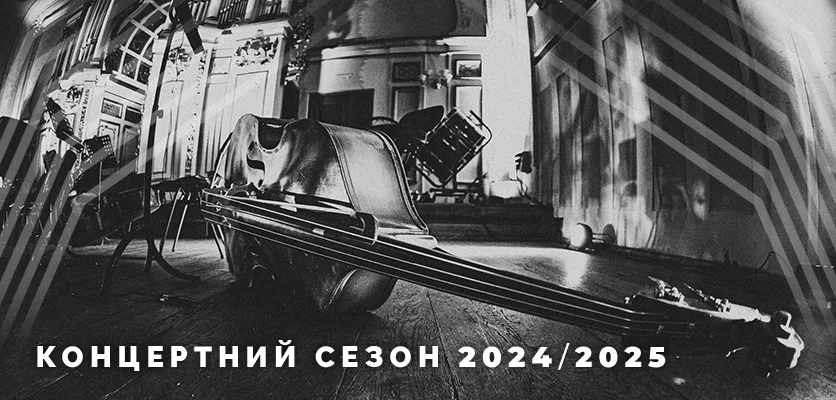
Every summer concert is both a conclusion and a warm invitation to meet again.
After all, the silence and pleasant coolness of the Philharmonic Hall will be waiting for their listeners until the very last days of the season — from the youngest, who have already graduated from the Forest Music School, to experienced connoisseurs of Ukrainian and world music treasures. Discover what will be heard at the Philharmonic in the final months of the 122nd concert season in our calendar:
Thursday 12.06.2025 / 19:00. Tangos. Waltzes. Foxtrots…
To mark the 110th anniversary of the birth of Bohdan Vesolovsky
The composer’s song legacy includes over 100 pieces. In the early period of his creativity, they were mostly modeled after the popular Western pop music of the time, in a style Vesolovsky began to develop in Lviv. Dance rhythms like tango, foxtrot, and light waltz dominated.
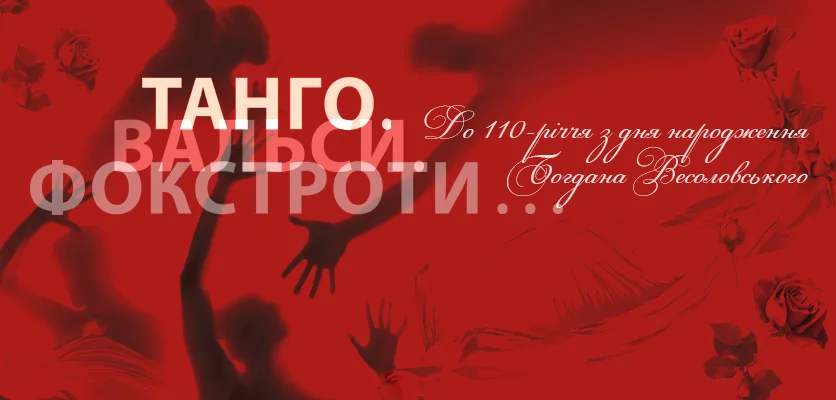
Short poetic texts emphasized the applied nature of the works, and most lyrics focused on romantic themes. However, Vesolovsky’s rich inner world and the circumstances he faced led some songs — while still rooted in personal emotions and popular rhythms — to gain a powerful civic resonance. One such example is the song “Fly, sorrowful song,” which became an anthem of Ukrainian post-war emigration in Canada.
Vasyl Slipak Memorial Marathon.
The marathon is dedicated to the memory of VASYL SLIPAK — an outstanding Ukrainian opera singer, soloist of the Paris National Opera, volunteer, participant in combat actions in Eastern Ukraine, Hero of Ukraine, and recipient of the Order “For Courage” I degree.
Saturday 28.06.2025 / 16:00. TIMELY
Small Concert Hall named after Vasyl Barvinskyi (Lviv State Music Lyceum named after Solomiya Krushelnytska. 10 Zelena St.)
“Timely”: an author’s project by Stanislav Badrak.
In a difficult time for the country, the music of Mykola Lysenko resonates with exceptional relevance. In the first part of the concert, Lysenko’s works based on poems by various authors reveal the vast spectrum of the human soul — from love to suffering, from serenity to tragedy — which Ukrainians deeply experience today.

Shevchenko’s verses are quietly sorrowful for Valentin Silvestrov. His farewell to his native land, rendered with the composer’s delicate musical language, touches the deepest strings of the soul — for the music makes this parting feel heartbreakingly final.
Sunday 29.06.2025 / 18:00. LIGHT IN THE SHADOW: BLACK AND RED
It is said that to better sense an aroma, one should close their eyes — the absence of one sense enhances the others. A childhood illness plunged Czech composer Josef Labor into total darkness when he was only three. Highly sensitive to the world around him, the boy focused entirely on sound, soon revealing exceptional musical talent.
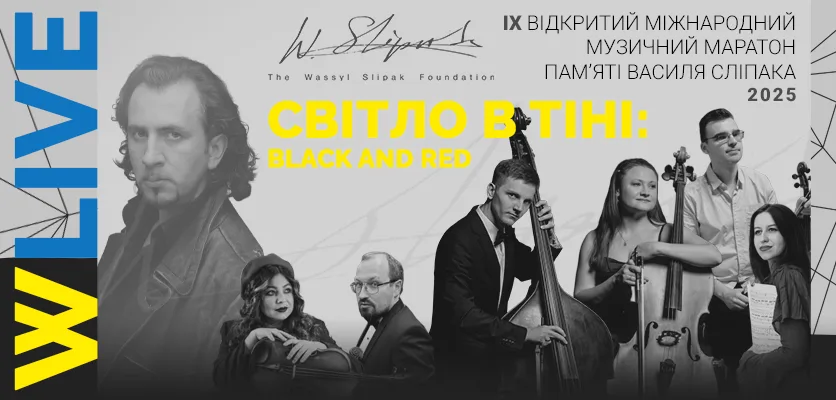
In 1886, Labor completed his Piano Quintet in E minor, which, together with the Piano Sextet by Felix Weingartner, will form the program performed by young Ukrainian musicians: Teresa Katarina, Borys Koblyk, Maksym Semeniuk, Olena Humeniuk, Daniil Hrushyn, and Yeva-Evelina Kulikovska.
Thursday 03.07.2025 / 19:00. Shadows of Three: Schubert. Schumann. Takemitsu
The viola demands special delicacy from composers — which is why this instrument is most appreciated by musical gourmets and lovers of unique timbres. Tōru Takemitsu called his music a garden and himself — a gardener. To him, the viola was a rare flower.
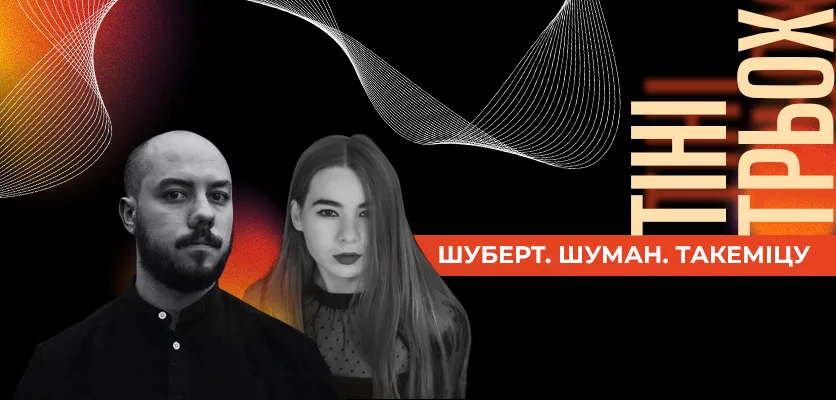
For Robert Schumann, the viola had different colors: its sound best expressed the composer’s romantic ideal — a tale of chivalrous deeds, beautiful ladies, and a bygone world. Meanwhile, Franz Schubert’s groundbreaking song cycle astonishes with its intense expression of personal feelings — rendered through a lyrical tenor voice (interpreted here by viola) and a rich, masterful piano part. We invite you to explore the diverse shades of viola music performed by soloists Andriy Savych and Iryna Berchuk!
Friday 04.07.2025 / 19:00. Symphony of Freedom
Freedom, identity, the power to express and to impress — these values need strong defense today. On July 4, the Academic Symphony Orchestra of the Lviv National Philharmonic, under the baton of American conductor John Moon, will reinterpret classical masterpieces that reflect the theme of liberty.
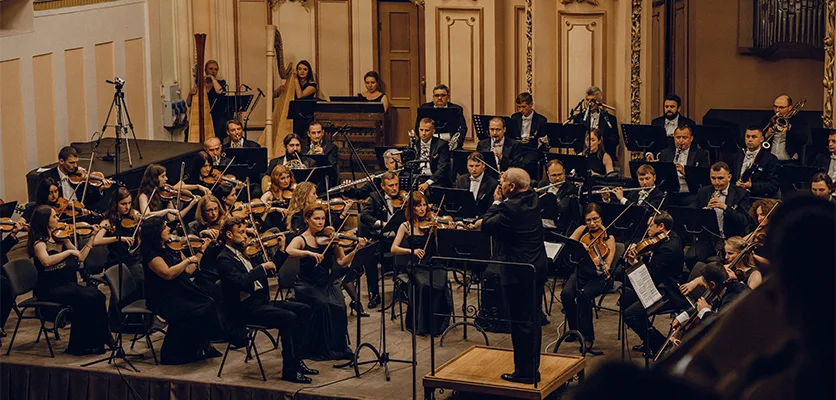
Sunday 13.07.2025 / 18:00. Symphony of Recovery. Season Closing Concert
On July 13, the birthday of the outstanding composer and patron of the Lviv National Philharmonic, Myroslav Skoryk, a commemorative concert will be held. Traditionally, this day marks the end of the Philharmonic season.
The evening will begin with the Ukrainian composer’s “Elegy” — a tender greeting from the Maestro to his native Philharmonic and devoted listeners. The full energy and color of Skoryk’s style will be heard in the “Carpathian Concerto.” Mythical moods — this time of the island of Lesbos, not the Carpathians — will continue in Maurice Ravel’s *Daphnis et Chloé* symphonic fragments. In contrast to his idealized musical vision of antiquity, Ravel’s Piano Concerto for the Left Hand in D major tackles the challenges of his interwar time. The concerto was commissioned by Austrian pianist Paul Wittgenstein, whose brilliant career was interrupted by WWI and the loss of his right arm.
On the final evening of the season, the tenderness of Ravel’s music and the power of human will shall come alive through the performance of the Academic Symphony Orchestra of the Lviv National Philharmonic and soloist Violina Petrychenko, under the direction of conductor Hobart Earle.
Also, a reminder: the exhibition “Affinity” — an art project by Roman and Taras Opalinskyi dedicated to the 44th “Virtuosos” Festival — continues in the Foyer of the Lviv National Philharmonic. The exhibition is open daily (except Mondays) from 3:00 PM to 6:00 PM.
Share
Popular
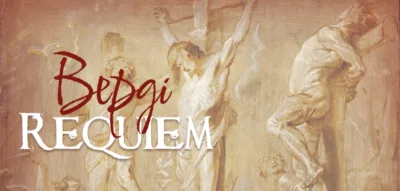 01.04.2025
Announcements
01.04.2025
Announcements
In memory of those killed in the Russian-Ukrainian war
On Holy Thursday, we invite you to a classical music event that will be a musical reflection on sacrifice, ... 05.02.2025
Announcements
05.02.2025
Announcements
COURSE masterclasses begin
The anniversary, tenth edition of the COURSE masterclasses will be held fro...
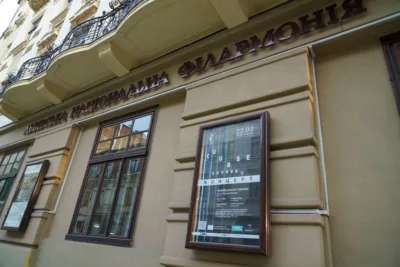 03.03.2025
Concerts
03.03.2025
Concerts
COURSE masterclasses: overview
The tenth edition of the International New Music Masterclasses COURSE at th...

